Governance and Ministry
Governance and Ministry
Rethinking Board Leadership
Second Edition
Dan Hotchkiss

An Alban Institute Book
ROWMAN & LITTLEFIELD
Lanham Boulder New York London

Published by Rowman & Littlefield
A wholly owned subsidiary of The Rowman & Littlefield Publishing Group, Inc.
4501 Forbes Boulevard, Suite 200, Lanham, Maryland 20706
www.rowman.com
Unit A, Whitacre Mews, 26-34 Stannary Street, London SE11 4AB, United Kingdom
Copyright 2016 by Rowman & Littlefield
Portions of this book have appeared in the Clergy Journal , published by Logos Productions, Inc. (www.logosproductions.com); Congregations and Alban Weekly (www.alban.org); and Perspectives for Church and Synagogue Leaders (www.congregationalconsulting.org).
This book is designed to provide accurate and authoritative information in regard to the subject matter covered. It is published with the understanding that the publisher is not engaged in rendering legal, accounting, or other professional service. If legal advice or other expert assistance is required, the services of a competent professional person should be sought. (From a Declaration of Principles jointly adopted by a Committee of the American Bar Association and a Committee of Publishers and Associations)
All rights reserved . No part of this book may be reproduced in any form or by any electronic or mechanical means, including information storage and retrieval systems, without written permission from the publisher, except by a reviewer who may quote passages in a review.
British Library Cataloguing in Publication Information Available
Library of Congress Cataloging-in-Publication Data
Hotchkiss, Dan.
Governance and ministry : rethinking board leadership / Dan Hotchkiss. Second Edition.
pages cm
Includes bibliographical references and index.
ISBN 978-1-56699-738-6 (cloth : alk. paper) ISBN 978-1-56699-739-3 (pbk. : alk. paper) ISBN 978-1-56699-771-3 (electronic) 1. Church polity. 2. Church committees. 3. Christian leadership. 4. Church management. 5. Church officers. I. Title.
BV650.3.H68 2016
254dc23
2015034705
 The paper used in this publication meets the minimum requirements of American National Standard for Information SciencesPermanence of Paper for Printed Library Materials, ANSI/NISO Z39.48-1992.
The paper used in this publication meets the minimum requirements of American National Standard for Information SciencesPermanence of Paper for Printed Library Materials, ANSI/NISO Z39.48-1992.
Printed in the United States of America
Foreword
N ot long ago I was meeting with the board of a congregation that found itself wrapped around the axle over the leader of their music ministry. I listened as the fifteen people in the room said why they were for or against the staff person and the kind of music he was doing. People were pretty worked up.
After a while I posed a couple questions: What do your by-laws say about who supervises this person and what authority they have? What are your church policies for staff review and evaluation, and have such evaluations been carried out?
People looked a little uncomfortable as I asked these questions. After some hemming and hawing, one person said, Well, we dont worry too much about by-laws and that sort of thing. Were pretty informal around here.
While it is possible to become a by-law fanatic and go overboard, often the tendency, as in the congregation I refer to above, runs the other way. Theres a serious lack of clarity about who has what job, what authority, and what responsibilities. The appeal to informality is a cover for governance or administration that is sloppy and lacks transparency.
Theres another thing that happens when congregations arent reasonably clear about their governance and administration processes and procedures. These congregations end up doing what kids do who are just starting out at soccerthey play bunch ball. All twenty-two players cluster around the ball and hammer away. In the church, bunch ball looks like everybody needing to be in on every issue, conflict, or decision.
On the soccer field the result is sore shins and little ball movement. Its not so different in congregations that default to bunch ball. People get sore and the congregation gets stuck. When this is chronic, many of a congregations potentially best leaders say, Thanks, but no thanks, and even leave the church altogether.
There are two reasons for you to get this book, to read it, and to study it with the leaders of your congregation. One is that, without clarity about how we order and conduct our life together as a congregation, things rapidly become a real mess.
The second reason to get and use this book by Dan Hotchkiss is more positive. Here you will find real help in sorting out the appropriate role of a governing board, as well as what is properly on the boards plate and what is not. Clarity about this helps you take the next steps: clarity about the role of staff, of committees, of the congregation.
Beyond that, a really effective governing board is working with pastoral leadership to formulate the big picture of a congregations mission and priorities. These days congregations that are not focused around a compelling big picture or vision, and are instead lost in the high grass, are at risk. An effective governing board minds the big picture, and in doing so is a good steward of a congregations resourceshuman, financial, and spiritual.
One truth in labeling warning: as Dan points out (and I heartily concur), changing a congregations governance is not year one, or even year two or three, work of a new pastorate. Job one is building trust. No one should take on governance change until trust is firm and the key people know one another and the church they serve.
If trust is established, moving toward a governance system that really works is worth all the time and energy youll put into it. Governance that is clear, fair, open, and effective goes a long way toward making a congregation healthy and vital.
I commend this book to you. More than that, I urge you to get it, to read it as a leadership team, and to use it. If you have the first edition you will find a lot of new material here. Some of the most valuable elements have to do with the ways different sized congregations operate and what good governance looks like in those different settings. You will also find new help here on leading, and surviving, the change process.
Dan Hotchkiss brings to this work a great combination of seasoned wisdom and field-based experience. Im grateful for his work.
Anthony B. Robinson
Preface to the Second Edition
S ince Governance and Ministry was published in 2009, it has reached a surprisingly wide audience, including Roman Catholics, Southern Baptists, Ethical Culturists, Mennonites, and Reform and Reconstructionist Jews. The leaders of a number of denominational bodies have used it with their boards and recommended it to local leaders. As a result, my own perspective has broadened, and I have learned a great deal about how to make the book more useful.
I have reorganized this edition to make it easier for readers to find what they are looking for and streamlined the diagrams and terminology. Ive written five chapters, 7 through 11, that are almost completely new. Chapter 7 addresses congregation size. Chapter 8 paints a picture of life after governance change. Chapters 9 and 10 walk through the governance change process and the art of making policy, and chapter 11 treats a topic close to my heart: lay-clergy partnership. Finally, in place of a potpourri of policy fragments, appendix A offers a style guide for policy-makers, and appendix B gives a unified example of a board policy book.
Next page
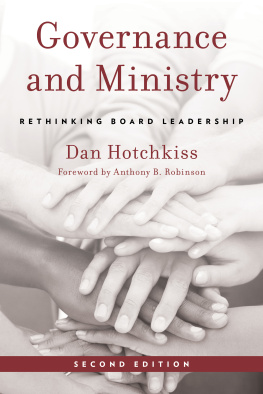

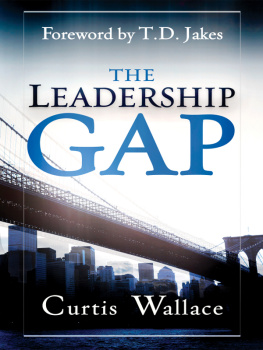
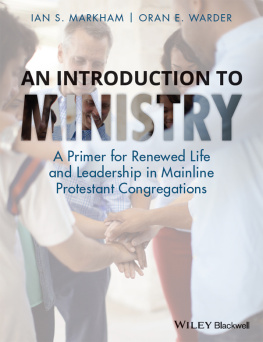
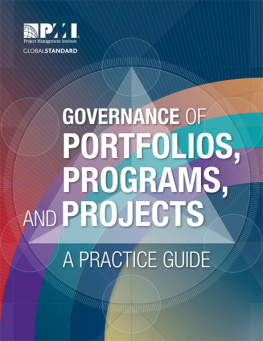
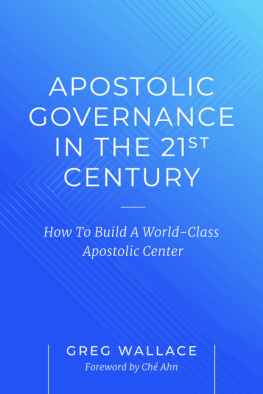

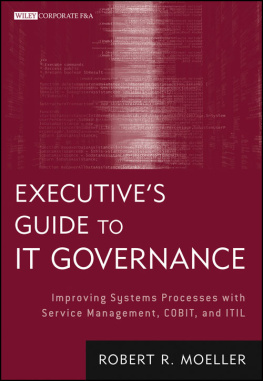
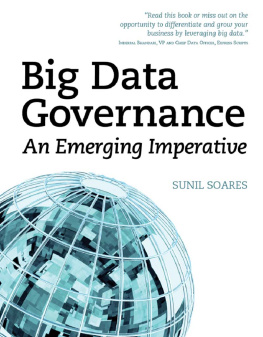


 The paper used in this publication meets the minimum requirements of American National Standard for Information SciencesPermanence of Paper for Printed Library Materials, ANSI/NISO Z39.48-1992.
The paper used in this publication meets the minimum requirements of American National Standard for Information SciencesPermanence of Paper for Printed Library Materials, ANSI/NISO Z39.48-1992.